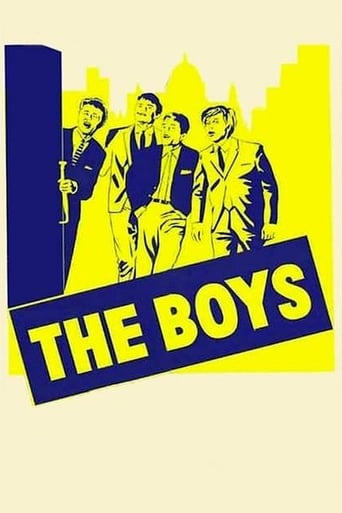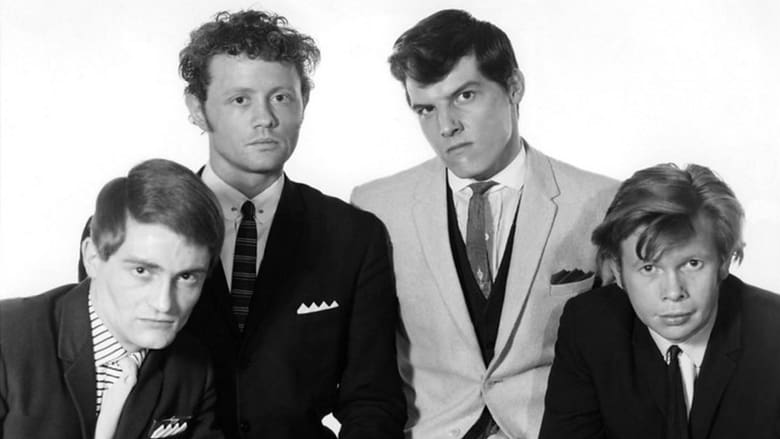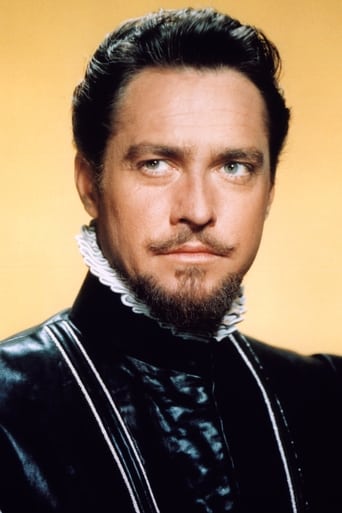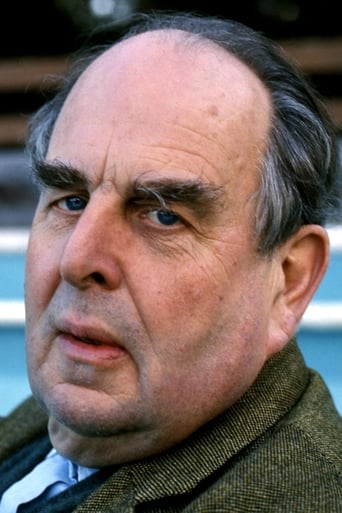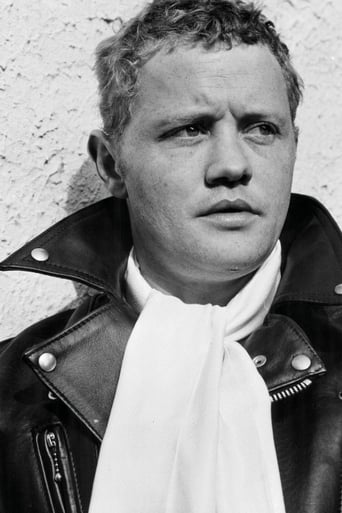The Boys (1962)
A night watchman at a garage is found murdered, and four teddy boys are put on trial for the crime. Witnesses and suspects give differing accounts of the lead-up to the crime, and the truth emerges.
Watch Trailer
Free Trial Channels
Cast


Reviews
What makes it different from others?
Sadly Over-hyped
The movie is wildly uneven but lively and timely - in its own surreal way
One of the best movies of the year! Incredible from the beginning to the end.
Four young hooligans on the rampage apparently, scandalise intimidate and browbeat their way round the West End before brutally putting to death, with a knife, a night watchman in the course or furtherance of theft.Courtroom drama in which we're shown the same events two different ways, first by the witnesses and then the defendants, so that we don't know whether we're seeing the truth or not. Both versions are similar but the subtle differences are enormous in terms of whether they're innocent or guilty. We're inclined to believe the defendants, at first, that all there is against them is a "farrago of circumstantial evidence", as defending council, Robert Morley puts it. It all actually turns out to be a rather large red herring though.Kids carrying knives gives the film a bit of relevance for today. The boys' teddy boy clothes (actually rather smart) and music by the Shadows (mainly timpani drums) perhaps don't. The whole thing plods along for twenty minutes of events leading up to the crime: a bus to Surrey Docks with nervous conductor Roy Kinnear; a snack bar in a billiards hall; Alan Cuthbertson (who also pops up as a lawyer in Performance and Twitchin in Fawlty Towers) as a motorist; Wilfrid Bramble (Steptoe) as a toilet attendant; and Colin Gordon, as Gordon Percy Lonsdale, waiting in a cinema cue to see Hungry For Love. Gordon was at the Ministry of Pensions for thirty two years and he's a widower. No wonder he's hungry for love. This is all punctuated by prosecution council Richard Todd telling witnesses in the dock to "take your time - watch his lordship's pencil", and Montgomery (Morley) giving it lots of "I put it to you" in defence. The film comes to life when, "backstage", Morley explodes and starts kicking off on the defendants. "You spread your net of terrorism over half of London " "Leave him alone you fat, old " replies Ronald Lacey (Harris in Porridge, Lacey also does a nice little turn in a Sweeney episode "Thou Shalt Not Kill") doing his daft, overgrown kid role. (His ambition is to own a big house in the country and have the Spurs playing on the football pitch "with only me watching, see.")We're left to draw our own conclusion as to why Stan (Dudley Sutton) commits murder: if you carry a knife you're going to use it sooner or later; we're all just one step away from losing control; or maybe it's all down to ineffectual parenting Stan's dad (Wensley Pithey) can't even be arséd to apply for a council flat while his wife is dying of cancer.All in all this is a great snapshot of a forgotten era.
Why have I never heard of this film before? Why is it so unknown? I watched this last night on BBC4 as part of the courtroom drama season (I do love a good courtroom drama) and i wasn't exactly expecting much, I'd never even heard of 'The Boys' before. And sure enough, when the film opened, i got what i expected. It was clumsy, ill paced and badly timed. But THEN...it got going! After 20 minute i was gripped, amazed at how well the film manipulated my emotions, making me sympathise with different people at will, changing my mind at every turn! The flashbacks are dealt with superbly, without the cheesy, dreamy dissolves and instead the witness testimonies abruptly change in to the actually events. Without going into too much detail on the plot, the way that the truth is subtly hidden from the audience is masterful, and it grips you even as much as something like The Lady Vanishes (which is saying a lot!) From its unpromising start, the film just keeps on getting better until its chilling conclusion, not only will it provoke your emotions but also your mind. It certainly isn't as beautifully shot as To Kill a Mockingbird, or as well acted as 12 Angry Men, but it's every bit as powerful and i think that this deserves to be recognised as one of the all time great courtroom dramas.
Four young working-class lads from the East End of London are accused of murdering a night watchman in the course of a robbery. The film is a mixture of courtroom drama and kitchen sink realism; scenes set in the courtroom are intercut with flashbacks showing the boys' home life and the events of the night leading up to the fatal stabbing. We first see the prosecution evidence and scenes showing events from the viewpoint of the prosecution witnesses. After the prosecution have finished presenting their case, however, the boys get the chance to tell their own story. Shots of them giving evidence in the witness box alternate with scenes showing events from their perspective. As might be expected, the two versions are very different from one another. The prosecution witnesses, representatives of the older generation, all give a one-sided account unfavourable to the young men; their defending barrister tries hard to discredit the evidence of these witnesses and to show that they are ill-disposed towards teenagers. The boys' own evidence suggests that they are guilty of nothing more than youthful high spirits, or at most petty rowdyism, which the older witnesses have misinterpreted as evidence of a violent criminal nature.Given this theme of age versus youth (a common theme in the sixties) it is perhaps unfortunate that, although the boys are supposed to be teenagers, the actors playing them were all in their late twenties. Indeed, Dudley Sutton who played the ringleader, Stan Coulter, was actually a year older than Roy Kinnear who played one of the supposedly older prosecution witnesses.The social realist aspects of the film are well done, giving a vivid picture of the era. (The term "kitchen sink" seems particularly apt in this case, as most of the scenes set in the boys' homes do indeed take place in the kitchen, with the sink very much in evidence, emphasising that for working-class people the kitchen often also served as a dining room and living room). This is not the middle-class "swinging London" that we see in films from a slightly later period such as "Darling" or "Blow-Up", but a London that seems to come straight from the pages of a Colin MacInnes novel, a world of Teddy Boys, coffee bars and billiard halls. To a modern audience it may seem odd that the boys' style of dress should have aroused so much hostility among their elders, as by today's standards they are all very smartly dressed, but in the fifties and early sixties this sort of dandyish appearance was regarded as the hallmark of the violent Teddy Boy movement.The courtroom aspects of the film could also have given rise to an interesting drama, an illustration of the idea that there are always two sides to every story and a plea for greater tolerance by the older generation of the ways of the young. Unfortunately, this side of the film did not work for me. There are two main problems. One is that the prosecution simply do not have a case in the first place. There are no eye-witnesses to the stabbing, no confessions, no forensic evidence, no statements by police investigators explaining why these four boys are regarded as the prime suspects. The only evidence the prosecution call is from members of the public who saw the boys on earlier occasions during the fateful evening, and this amounts to little more than "Those lads struck me as a gang of ruffians". Such evidence would be quite inadmissible under English law; even if it were admissible it would not by itself constitute the "proof beyond reasonable doubt" needed for a conviction. Evidence of a propensity to dress like a Teddy Boy, to engage in horseplay or to commit minor vandalism is not evidence of a propensity to commit murder. Robert Morley gives a characteristically florid performance as Montgomery, Counsel for the defence, but this struck me as a layman's idea of a criminal lawyer, in love with his own rhetoric and more concerned with scoring debating points than with the law. In real life he would doubtless have tried to persuade the Judge to disallow the prosecution evidence and to get the case struck out on a submission of no case to answer.The other problem with this film is that it abruptly changes direction near the end, a reversal of direction which undermines the message about not judging by appearances and being tolerant towards the young. We have been led to think that the boys are innocent, that the case against them is based on nothing more than prejudice, and that the film will end in their acquittal. Then, unexpectedly, Coulter breaks down under cross-examination and admits to the crime. It appears that he and two of his companions are indeed guilty (the fourth is acquitted). The film suddenly becomes an "issue" movie about the capital punishment as Coulter is sentenced to death. We are clearly intended to regard this as an unjust sentence, but Coulter is undoubtedly guilty of having struck the fatal blow; the two others (who cannot receive the death penalty, being under eighteen) are guilty only on a legal technicality. As anti-death-penalty propaganda the film is not very effective; it might have had more impact if the situation had been reversed and Coulter had been sentenced to hang for a crime actually committed by a younger accomplice. (As another reviewer has pointed out, this was the in position the real-life Bentley case).This could have been a gripping courtroom thriller, but was too clumsily handled. At most it is an interesting, but slight, period piece from the early sixties. 5/10
When I saw this film a couple of nights ago on late night TV I was struck by how much it captured the spirit of a time when I was a boy a little younger than 'The Boys' in the filmThe Boys in question are four teenagers charged with murder of an elderly night watchman during a robbery.Several social issues are 'on trial' Firstly, the generation gap. This was a time when 'teenagers' were a new concept in Britain (the four are described disparagingly by their elders as 'teddy boys'), and this perception his used by the defence to show that teenagers are harshly judged by their elders.The four in question are rowdy and ill mannered enough but rather too well spoken for real working class teenagers (particularly teen idol of the day Jess Conrad). However their plight is gripping enough to hold the interest of the viewer.In England in 1962 a) an 18 year old could hang for murder but not a younger accomplice (one of the most notorious incidents of the time was the hanging of 18 year old Derek Bentley - 1956 - while his younger accomplice who fired the fatal shot, could not be hanged) b) some types of murder - killing during a the commission of a crime - were capital, others not.The film points up these anomalies and was making a serious social criticism at the time.The film is a believable portrayal of poor lads on a night out that went disastrously wrong and has a nice little twist in the tailWorth hanging about to see this one - 8 out of 10

